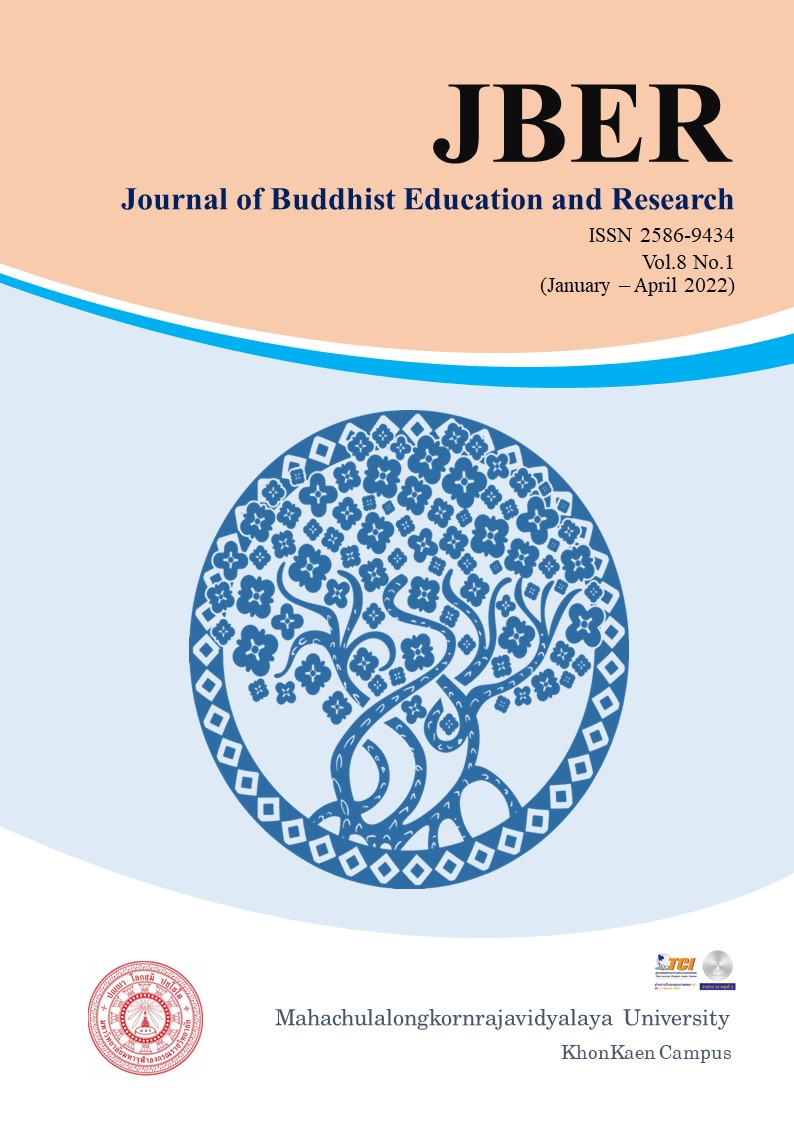USING ENGLISH VOCABULARY GAMES TO DEVELOP VOCABULARY SPELLING AND RETENTION ABILITY OF MATTHAYOMSUKSA THREE STUDENTS
Keywords:
Vocabulary; Vocabulary Games; Vocabulary Spelling; Vocabulary RetentionAbstract
The objectives of this research were to 1) compare the students’ vocabulary spelling and retention ability with criterion-referenced assessment (70 percent) 2) study the students’ opinions on English vocabulary games. The samples used in this research were 15 Matthayomsuksa Three students at Baan Bor Hoy School in the second semester of academic year 2020. The samples were chosen by purposive sampling. The instruments used in this study were lesson plans, an English vocabulary test and a questionnaire about the students’ opinions on English vocabulary games. The data were statistically analyzed by mean, standard deviation and t-test for one sample.
The results were found that; 1) The students’ vocabulary spelling and retention ability were at high level. 2) The Matthayomsuksa Three students were satisfied with English vocabulary games.
References
กรมวิชาการ กระทรวงศึกษาธิการ. (2544). หลักสูตรการศึกษาขั้นพื้นฐาน พุทธศักราช 2544. กรุงเทพฯ: สถาบันพัฒนาคุณภาพวิชาการ.
กรมวิชาการ กระทรวงศึกษาธิการ. (2551). หลักสูตรการศึกษาขั้นพื้นฐาน พุทธศักราช 2551. กรุงเทพฯ: โรงพิมพ์องค์การรับส่งสินค้าและพัสดุภัณฑ์.
เตือนใจ เฉลิมกิจ. (2545). เกมภาษาอังกฤษสำหรับเด็ก. กรุงเทพฯ: ดวงกมลสมัย.
บุษรีย์ ฤกษ์เมือง. (2552). การใช้เกมคำศัพท์ภาษาอังกฤษเพื่อพัฒนาการเรียนรูคำศัพท์ภาษาอังกฤษของนักเรียนชั้นประถมศึกษาปีที่ 4 โรงเรียนบุรารักษ์. สารนิพนธ์ปริญญามหาบัณฑิต. มหาวิทยาลัยศรีนครินทรวิโรฒ.
ประนอม สุรัสวดี. (2539). กิจกรรมและสื่อการเรียนการสอนวิชาภาษาอังกฤษระดับประถมศึกษา. กรุงเทพฯ: จุฬาลงกรณ์มหาวิทยาลัย.
สุคนธ์ สินธพานนท์. (2553). นวัตกรรมการเรียนการสอนเพื่อพัฒนาคุณภาพของเยาวชน. กรุงเทพฯ: อักษรเจริญทัศน์.
Allen, E. D. (1977). Classroom Techniques: Foreign Languages and English as a Second Language. New York: University Press Inc.
Coady, J., & Huckin, T. (1999). Incidental Vocabulary Acquisition in a Second Language. SSLA, 21, 181-193.
Craig, M. J. (1991). The Effects of Games on the Attitude toward School of Third Grade Black Males. Dissertation Abstracts International, 51(7), 2263.
Dickerson, D. P. (1976). A Comparison of The Use of The Active Games Leaning Medium with Passive Games and Traditional Activities as a Means of Reinforcing Recognition of Selected Sight Vocabulary Words with Mid-Tear First-Grade Children with Limited Sight Vocabulary. Dissertation Abstracts International, 10, 6456-A.
Laufer, B. (1997). The Lexical Plight in Second Language Reading. Journal Second Language Vocabulary Acquisition: A Rationale for Pedagogy, 20-34.
Pearson, P. D. & Johnson, D. D. (1978). Teaching Reading Comprehension. New York: Holt, Rinehart & Winston.
Taylor, A. J. R. (1979). A Comparison of Simulation Games with Traditional Teaching Methods. Dissertation Abstracts International, 40(5), 788-789-A.





